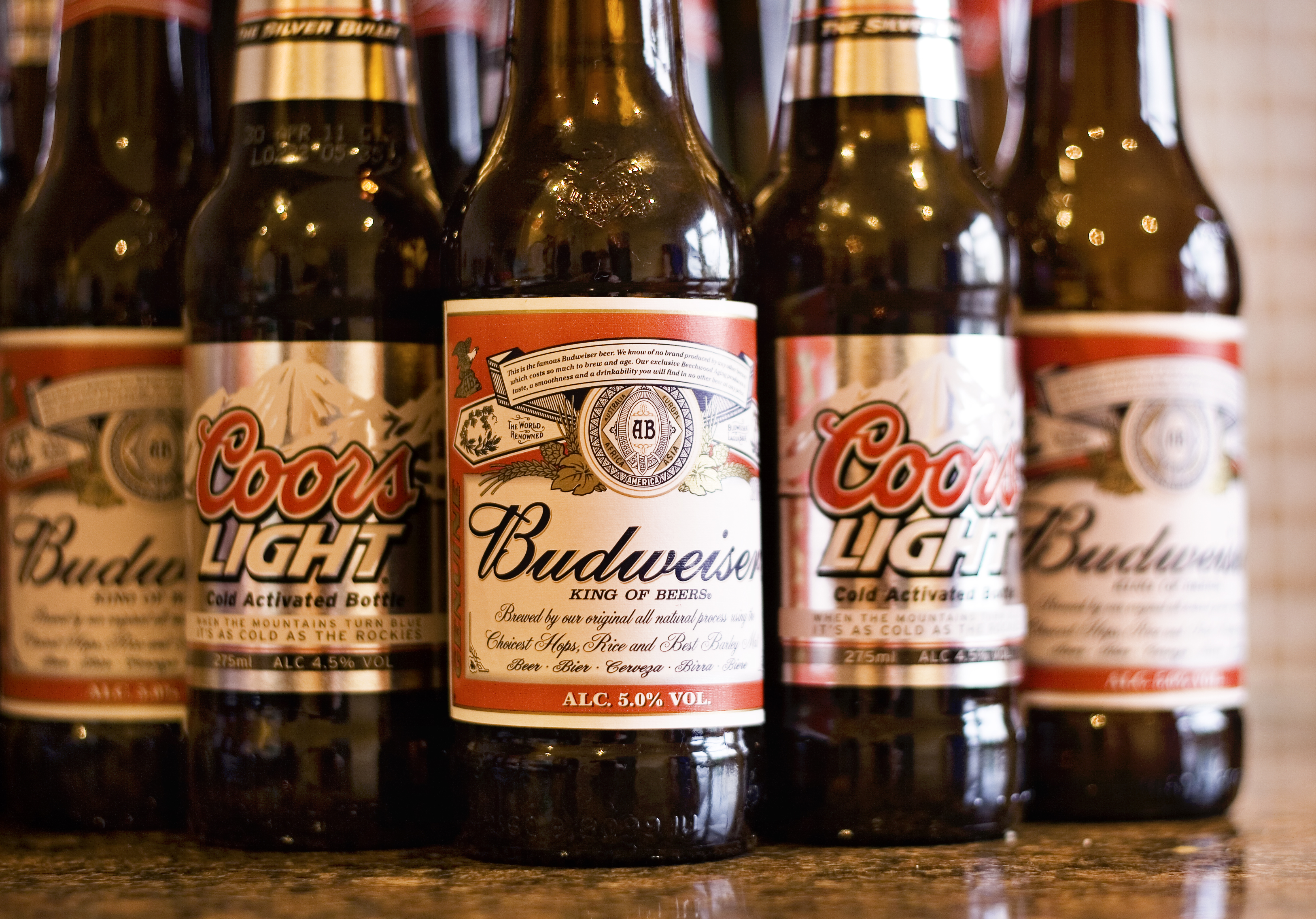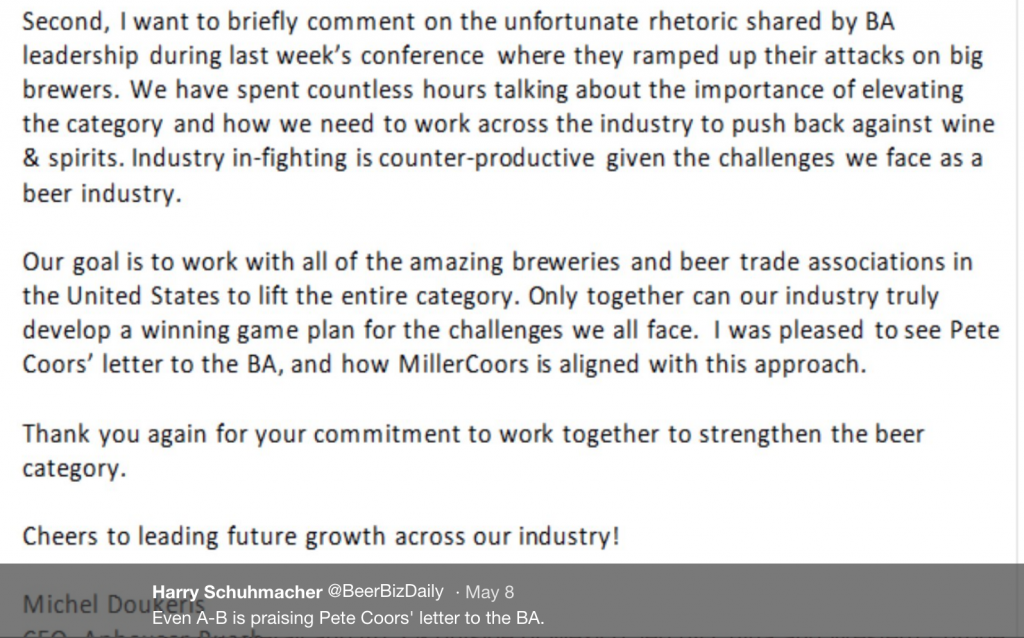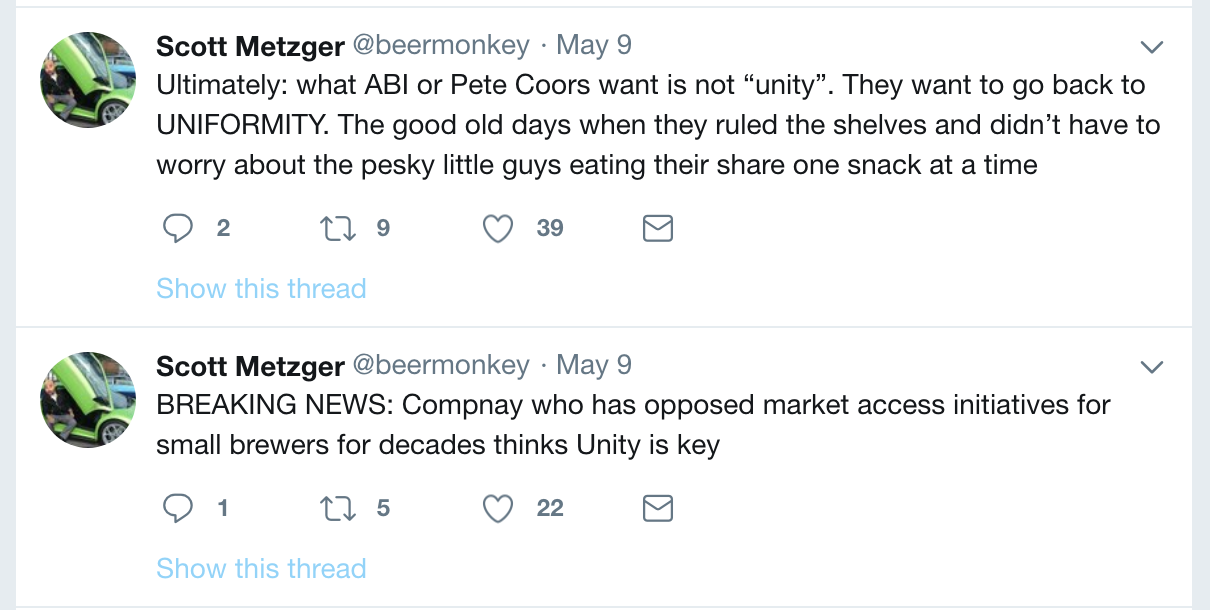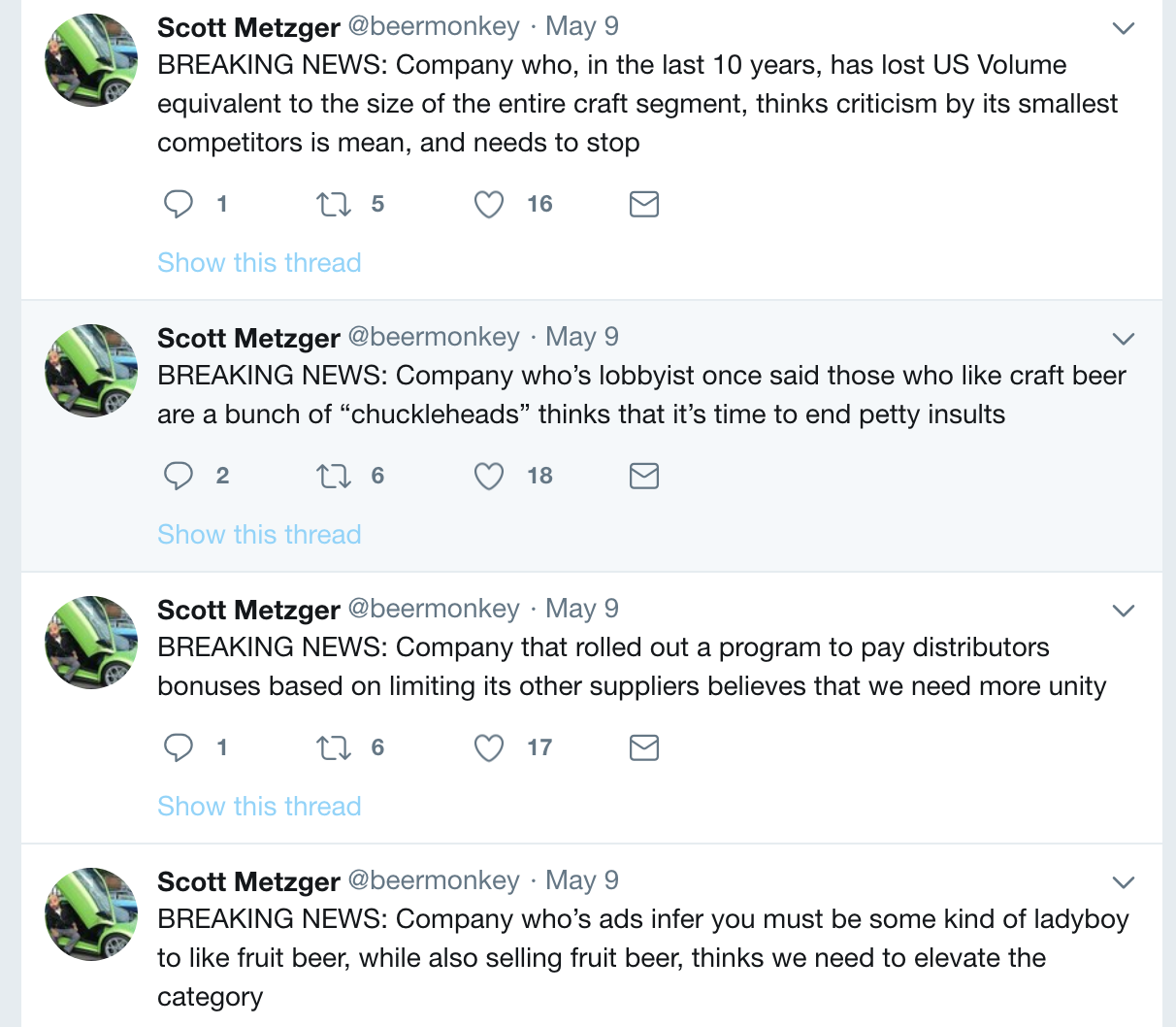The Brewer’s Association pulled no punches at the annual Craft Brewer’s Conference that was recently held in Nashville. BA chairman, Eric Wallace, addressed the issue of big beer in a fiery speech:
“Clever and deceptive packaging design, omission of ownership statements on labels, intellectual-property violations, denigrating and expensive marketing campaigns, monopolistic practices choking off raw materials and distribution channels, rampant violations of trade practices and exclusionary tactics in venues and accounts in many markets — these guys are out to eat our collective lunch and take your kids’ lunch money as well.”
Pete Coors’ Plea
He’s not wrong, but his words did draw the ire of Pete Coors, chairman of the board for Molson Coors Brewing Co. So much so that Pete decided to write an open letter to the BA about it. Don’t mind the fact that he never sent the open letter to anyone at the BA or that it was only released in a trade publication, Beer Business Daily, which is membership-based. Because nothing stays hidden on the internet, Coors knew that the open letter would leak out to everyone anyway. Still, it’s pretty funny to release an “open letter” that only goes to a small select few tradespeople. The full letter can be viewed here on Brewbound, but there are a few choice parts.
The leadership of the Brewers Association does a great disservice to the entire beer value chain by attempting to pit one part of the industry against another.
You must know that it is insulting to those of us who don’t meet the clever criteria of your self-proclaimed definition of “craft brewer.” This approach prioritizes insults and division over unity for a beverage that has been used to unify and celebrate together for generations.
We share distributors, many of whom would not be able to distribute Brewers Association beers without the scale provided by the large brewers. You claim that your members are precluded from distribution at retail, while I visit account after account that do not carry any “big brewer” products.
That is a slippery slope that does not end well for our industry. We have enough competition inside the beer business and outside it with wine, spirits and, increasingly, marijuana.
You undermine your credibility by pitting us against one another to the ultimate detriment of the entire beer industry.
Coors’ letter stirring lots of feelings throughout the craft beer community and ignited many rebuttal letters, including a well written, point-by-point letter from founder and owner of Ninkasi Brewing, Nikos Ridge. It also garnered a letter of support from Coors’ big brother, AB InBev, in a letter from CEO Michel Doukeris to wholesalers that was posted in a tweet by Harry Schuhmacher from Beer Biz Daily:
Scott Metzger or @beermonkey on Twitter had a few choice tweets for Michel Doukeris and his “unity speech”:
Metzger’s tweets are a succinct argument for why these pleas for unity seem disingenuous. This argument that all beer brands need to stand together against outside threats from liquor, wine, and now Mary Jane is a familiar one. It was used in the AB InBev’s promo video called “Six Viewpoints from the High End” which simultaneously called for unity and crapped on the BA’s, at the time, new independent beer seal. Why does craft beer need Big Beer in this fight? Craft beer has grown in this country despite big beer, not because of it. Independent craft beer is still such a small segment of the overall beer market and these big brewers have so much more weight to throw around, legally and politically. It’s not surprising that AB InBev would praise the viewpoint of Coors, but after so many of their marketing dollars spent maligning craft beer, why would they be pushing for unity now?
Why Big Beer Want Unity
It’s pretty clear why Coors and ABinBev want the support of the craft beer community. Sales and volumes are dropping for Big Beer and they are struggling to stop the bleeding. As reported by Fortune,
AB InBev, Heineken, and Molson Coors have all reported significant drops in beer volume in the U.S. in the first quarter of this year. According to The Wall Street Journal, AB InBev (BUD, -2.46%) saw a 4.1% drop, Molson Coors (TAP-A) a 3.8% drop, and Heineken (HKHHF, +0.64%) saw a “high-single-digit percentage” drop.
Craft beer has also has seen a dip in growth over the last two years, but overall, the craft breweries that Big Beer has bought out, are doing pretty fantastic. Terrapin Brewing, which sold to MillerCoors a couple years ago, is doing great sales-wise with a 25% growth in sales through the end of March. Golden Road Brewing, owned by AB InBev, opened up a brewery and beer garden in Sacramento to a full house after much opposition from Sacramento area independent brewers. Maybe this is why Big Beer wants to focus on “uniting” the craft segment. Focus on what’s working, in the U.S. at least, and put money where the growth is still happening, even if it’s at a slower rate than in previous years. It seems even with indie brewers working to distance themselves from Big Beer, the bulk of craft beer buying people don’t know or don’t care who owns these former craft breweries.
Craft brewers have long memories and there have been too many instances of Big Beer behaving badly to try and get everyone to come together now. Americans are drinking less beer than they were in past years and that definitely has something to do with shifting tastes and the availability of legal marijuana in some regions. These beer behemoths have so much money, however, the real question is why aren’t they buying up wine, liquor and weed ventures? Seems like that would be the move for these companies with deep pockets. Until Big Beer outlines exactly the ways in which they will help craft beer withstand this “outside threat,” it’s a non-starter. Pleas of unity after decades of divisive, monopolistic, and in many cases, underhanded business tactics, are falling on deaf ears.




